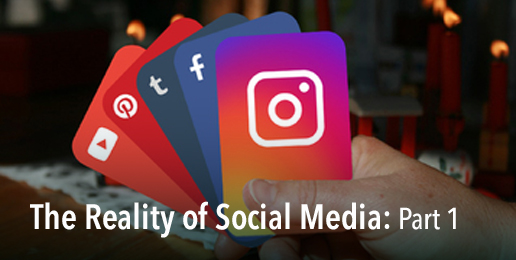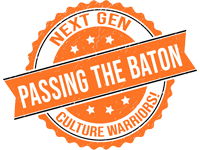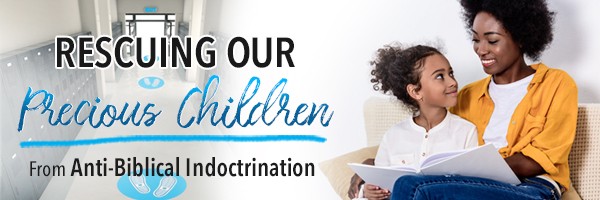
Everyone knows social media has negative effects.

It’s the topic of countless articles, films have been made on it, people constantly discuss it, and it’s generally considered a bipartisan issue. Warning cries about social media have been sounded so often that they have become background music, even though it isn’t even 50 years old.
But these warnings are being sounded for a reason. In the relatively short time we’ve had social media, we can already see that it’s incredibly harmful.
But social media also isn’t entirely evil. So, over the course of several articles, we’re going to cover in depth some of the most prominent social media platforms; Snapchat, TikTok, BeReal, and Instagram – the ones that Generation Z enjoys using. We’ll cover how they work, their different features, and then the good and bad – including safety concerns.
Before we cover the individual apps in depth, however, we’re going to begin with an overview of social media in general. If this insults your intelligence, please forgive me. When I say I’m going in-depth, I mean I’m giving a social media crash course. It will be long, but hopefully helpful.
What is Social Media (Including Defined Terms)?
Social media is defined by Merriam-Webster as “forms of electronic communication (such as websites for social networking and microblogging) through which users create online communities to share information, ideas, personal messages, and other content (such as videos).”
This means that social media includes things like Instagram and Twitter (Now X), but also YouTube, Reddit, Discord, and Pinterest. Social Media connects users from all over the world, giving people a platform to interact, connect, and share their thoughts, styles, music, art, etc. People can “follow” or “friend” others to get regular updates on what they post. When you post, you’re rewarded with likes, shares, more follows, etc.
The phrase “going viral” refers to when a video or picture takes off on social media and gathers thousands of views in a short time frame. An “influencer” is someone who through social media seeks to influence others – often to buy something – by showing how they live, decorate their house, paint cat portraits, or whatever their “thing” is. Frequently influencers have ad partnerships in which they’re paid to promote goods or services through their accounts.
Let’s Talk Pros:
Despite the buzz around social media generally centering on the negative (and I would argue that the negative far outweighs the positive), social media does have some positive aspects.
For any young (or young at heart) entrepreneurs, social media can help you garner support, get the word out, and sell more. In fact, having a social media account for your business where you frequently post can almost single-handedly determine the success of your business.
Social media also allows users to connect with others in their real-life community, so there is the possibility of kids and teens feeling left out if they don’t have it.
Some organizations or businesses use social media as a way to connect with their followers, update them, share information about events, and even provide customer service.
Some universities even use social media as a way to connect with their students and share information with them about events.
Social media lets you connect with and follow those who have the same interests as you, and because you can follow people from all over the world, it’s possible to discover some genuinely fascinating things on social media.
One of my friends made the observation that in a lot of ways, social media serves as our generation’s public square. It’s true in a sense, and I think this can be either a pro or con, depending on how you look at it. You can influence a lot of people on social media.
But you can also be deeply influenced. And this leads me to….
The Cons:
Social media is designed to be addicting.
At the start of this year, we published an article highlighting a lawsuit brought against prominent social media companies due to the addictive nature of the apps. The social media algorithm is designed to capitalize on our brain’s reward system.
It uses a concept known in psychology as operant conditioning to train us to keep coming back and using the app through intermittent variable rewards. It’s the same concept utilized by a slot machine. As you use the app, you’re intermittently “rewarded” with notifications about people liking or commenting on your posts, following your account, or interacting with your profile.
Your brain releases dopamine, a naturally occurring chemical that makes you happy. To get more dopamine hits, you keep checking social media, posting, and so on, because it’s a quick way to get that dopamine high. The algorithms are also designed to notice what you click on, what your friends click on, who you follow, etc., feeding you a constant stream of material you’ll find interesting to keep you hooked.
It makes it very easy to waste time just scrolling through the never-ending, constantly updating content.
Social media is notorious for the negative effects it has on mental health. It can single-handedly cause anxiety, depression, eating disorders, suicidal thoughts, fear of missing out (also known as FOMO), comparison, etc. Social media lets users create a “perfect life” for the world to see, with filters that can even change how you look in pictures to make you “more perfect.”
Comparing yourself to other’s “enhanced” lives and experiences can lead to a lot of problems. But there’s a darker side, too – experiments done by a few scientists pretending to be teenagers have shown that some algorithms purposefully send harmful, exploitive material – like eating disorder content, self-harm, or porn – directly into the user’s feed.
Because scrolling social media turns your brain off and numbs your feelings, it makes the emotions worse when you “come back” to the real world.
Social media can cause behavioral issues, too. During the COVID pandemic, some kids developed symptoms mirroring Tourette’s disease from an over-abundance of time spent watching videos on Tourette’s, or on people faking Tourette’s.
There has been strong evidence to suggest that many social media platforms ban, hide, censor, or punish content they don’t agree with worldview-wise. Most social media is left-leaning and way woke, which means (for those not paying attention and even for some who are) that social media influences how you think.
Generation Z in particular gets a lot of their information (and worldview) from social media.
Privacy poses another concern since social media is a place where users post pictures of themselves and their friends and family.
A dedicated stalker could easily gather personal information if he or she wanted to. In many apps, those who don’t follow you can still message you. I personally get a lot of weird message requests.
Most are spam, but sometimes they are a little creepy. Many apps track location and other information they gather from your phone. And there is always the danger of strangers with pedophilic or get-rich-quick intentions contacting you in hopes of grooming or doing or saying something weird or horribly inappropriate.
You Made It Through!
Congratulations on reaching the end of this long article! I hope it serves as a quick introduction to the world of social media in general.
Social media isn’t all bad. It certainly has its benefits.
I really like being able to see what my friends are doing, and it makes it easier to keep in touch with some friends or family who live far away. But as it has such a hold on our world right now and the alarm bells ring more furiously with each passing day, it’s incredibly important to know and understand its dangers, use it wisely, and set up healthy boundaries for yourself and your children.
Over the coming months, we’ll post in-depth overviews on some of the social media apps most commonly used by Generation Z. Stay tuned for more.
























